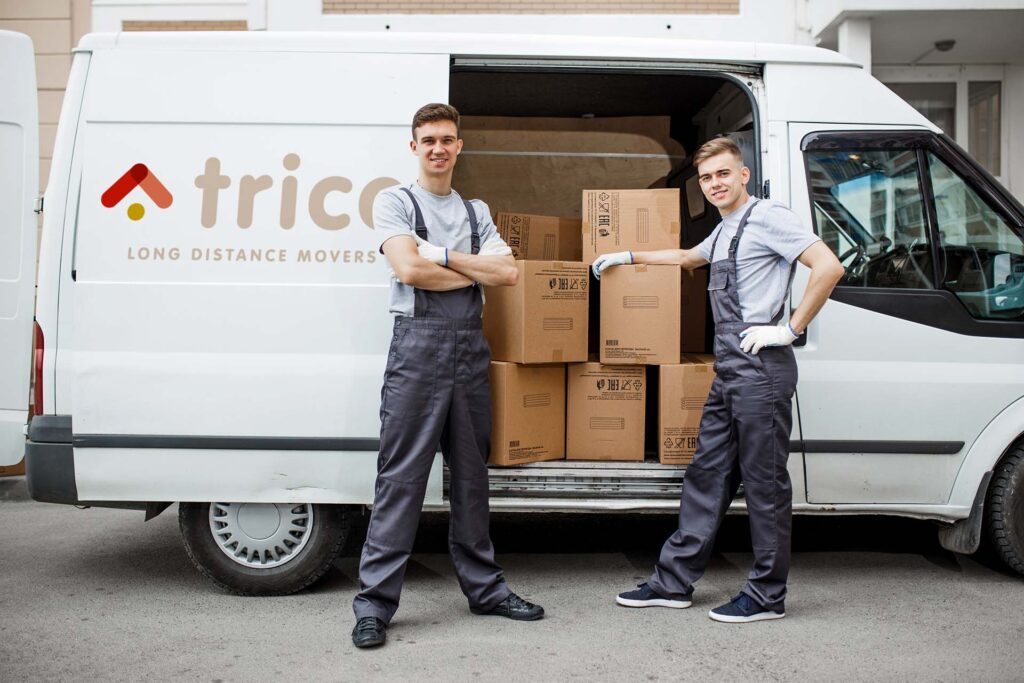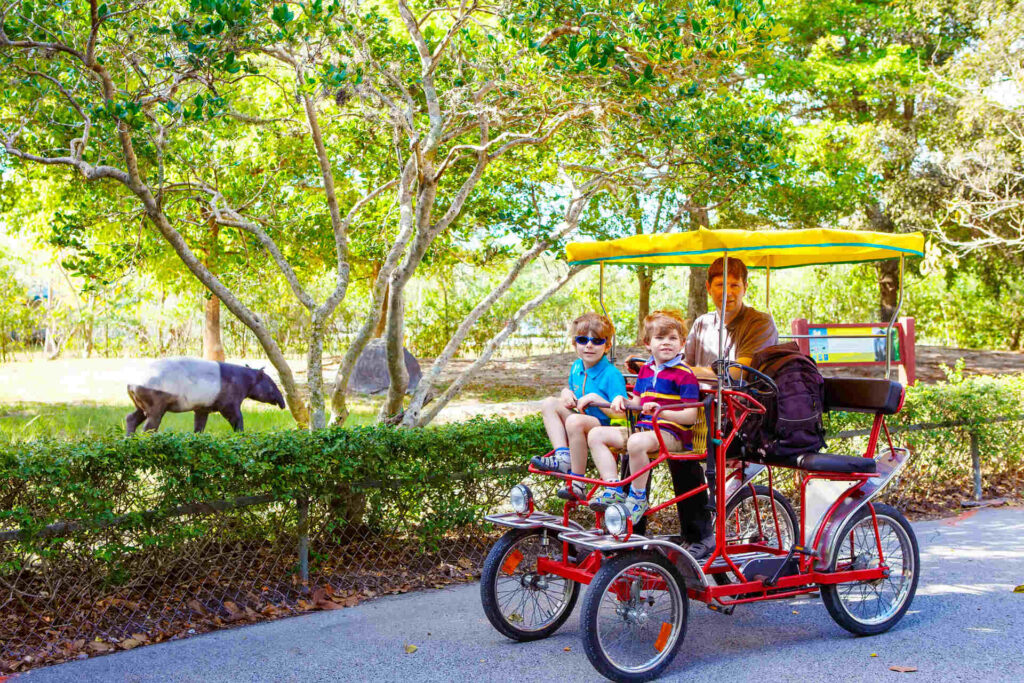Embarking on a relocation journey but not sure how to plan a move? Worry not! You are in the right place. Our guide will simplify your relocation process, transforming it into a manageable and stress-free experience. No matter the distance of your relocation, our packing and organizing tips will ensure a seamless transition to your new home.


Planning to move out of state? Start by understanding the process, from sorting belongings to booking movers. Begin preparations early and double-check all arrangements. Create a stress-free moving checklist. Declutter to ease the whole process. When choosing movers, prioritize reliability and cost. On the big day, stay organized and focused. Once you’ve arrived, unpack methodically, starting with essentials.
How to plan a moving journey? Efficient relocation planning starts with building a well-thought-out foundation. This initial stage is all about determining your relocation schedule.
Moreover, a realistic moving timeline management gives you the much-needed structure and helps avoid last-minute rushes. Aim to start planning at least two months before your set date. This allows ample time for unexpected delays and ensures a more stress-free relocation process.
You will find out that one of the key steps in learning how to plan for a move to another city is setting a realistic relocation budget. It involves more than just accounting for a mover’s fees. Consider additional costs like packing materials, travel expenses, temporary lodging, and even a contingency fund for unforeseen expenses.
Start by getting quotes from several moving companies to gauge the market rate. Then, list all possible expenses and allocate funds accordingly. Remember, budget-friendly moving strategies can prevent relocation stress during and after this process is concluded.
You should know that decluttering before your relocation is a must. It’s not just about reducing the volume of items to transport – it’s also an opportunity for a fresh start.
Sort through your belongings and categorize them into keep, sell, donate, and discard piles. This process can be emotionally taxing but also liberating. By shedding the unnecessary weight, you will potentially save on your moving costs and simplify the unpacking and settling-in process.

When researching “long-distance movers near me,” there are several factors to consider. Firstly, check their track record with the Federal Motor Carrier Safety Administration (FMCSA).
This agency regulates interstate companies, and a clean record with them is a good indication of reliability and professionalism. Additionally, investigate the company’s insurance and liability policies to understand your rights and protections in case of any mishaps.
Before you make your final pick, it’s essential to understand the full spectrum of relocation solutions available. This knowledge is key in choosing the most suitable company for your specific needs. At Trico Long Distance Movers, we pride ourselves on offering a comprehensive suite of long-distance moving services. Our experienced team is well-equipped to handle even the most complicated relocation tasks with ease and professionalism.
Our standout offering is our professional packing services. We understand the importance of ensuring your belongings are not only safely packed but also arrive at your new location in impeccable condition. Our team is using high-quality materials to safeguard your items throughout the journey. Whether it’s delicate glassware, bulky furniture, or valuable art pieces, you can trust us to provide the utmost care and attention to every item.
Once you have a clear understanding of the services you require, start comparing quotes and reviews from different companies. Don’t just focus on the cost – consider the value and quality of service as well.
Read customer reviews and testimonials to gauge past clients’ experiences. This will give you insight into the company’s reliability, professionalism, and customer service. It’s important to gather multiple quotes to ensure you are getting a fair price. But remember, the cheapest option may not always be the best.

When cross-country moving, start by sorting and categorizing your possessions based on their necessity and usage. Go through your home one room at a time, starting from the least used space. This way, you can use your kitchen, bedrooms, and bathrooms close to your moving day. Make sure to clean your space as soon as you pack it up.
Create a detailed inventory list as you store away your stuff. Include a brief description of each item, its condition, and its box number. This list will also serve as a record for insurance purposes in case of loss or damage during transit. Last but not least, remember to pack your moving essentials and set them aside. Make sure that they are not mixed with the rest of your belongings.
Fragile things require special attention. Box up your fragile items separately using high-quality protective materials like bubble wrap, foam peanuts, and appropriately sized sturdy boxes. Moreover, consider custom crating for extremely valuable or delicate items.
It’s also advisable to keep a personal inventory of these items, including their estimated value and any identifying marks. If booking a relocation service, approve these items and insure them properly. Label your containers to ensure they are addressed accordingly.

These tasks are essential to ensure a smooth and easy transition to your future home, avoiding any legal or logistical complications. Neglecting them can lead to issues like missed bills, legal troubles, or difficulty in accessing services at your new location. Here’s a list of key tasks you should think about before relocating:
If you’re relocating with pets, update their microchip information with your new address. Ensure their vaccinations are up to date, as this is often required for pet registration in a new area. Research the specific regulations and requirements of your future state or region. This includes checking for any breed restrictions, leash laws, or mandatory quarantines to ensure your pet can legally and safely make the move with you.

Beginning your moving day preparations early is a key strategy for a streamlined relocation experience. Starting well in advance allows you to tackle tasks in a manageable, stress-free manner.
This includes everything from finalizing your boxing-up process to confirming details with your movers. Prepare a detailed plan for the big day itself, considering the loading logistics, transportation, and arrival times.
During this process, there are certain items you should always keep with you. These include important documents like passports, birth certificates, and financial records. Also, pack enough food and water rations, medications, power banks, portable devices and their charges, and snacks.
If relocating with kids, keep their favorite toys or comfort items close. For pets, have a travel kit ready with food, bowls, a leash, and any necessary medications. Keeping these at hand not only provides comfort but also prepares you for any unexpected delays or immediate needs upon arrival at your destination.
Once the relocation is complete, settling into your new home is the next important phase. Start by prioritizing post-relocation tasks, such as unpacking essential items first. Develop a systematic approach to unpacking and organizing to avoid feeling overwhelmed.
To quickly make your new place feel like home, start by setting up familiar and comforting items like family photos, favorite books, or decorative pieces. It’s also beneficial to explore your new community.
Attend local events, visit nearby parks, and introduce yourself to neighbors. This not only helps in integrating into the community but also aids in creating a sense of belonging in your new environment.

The task of handling relocation logistics can often feel overwhelming if you are handling it alone. Details involved in packing, organizing, and transporting belongings can quickly turn into a big challenge if you are not sure what you are doing. However, this process becomes much more manageable and streamlined with professional guidance and expertise.
At Trico Long Distance Movers, we are dedicated to taking this complex task head-on. Our team will ensure a smooth transition of your belongings to your future abode. Don’t let these logistics dampen your excitement. Contact us today, and let us make your relocation journey worry-free.
The first steps in planning a relocation involve organizing and strategizing. Begin by setting a realistic moving date and creating a detailed timeline. Next, sort and declutter your belongings to reduce the load.
Research and select a reputable company, particularly for long-distance relocation. Start gathering necessary supplies and create an inventory list of your belongings. Don’t forget to address legal and administrative tasks like updating your address and transferring records.
Use sturdy boxes and quality materials to protect your items. Label each box with its contents and the room it belongs in.
Fragile items should be wrapped individually and packed tightly to prevent movement. Consider special crating for highly valuable items. For clothes and fabrics, vacuum-sealed bags can save space and protect against moisture.
In the first week, prioritize unpacking essentials like bedding, kitchen items, and toiletries. Set up utilities and internet if not already done. Update your driver’s license and register your vehicle.
Familiarize yourself with the local area – locate grocery stores, hospitals, and other essential services. Start the process of integrating into the community, perhaps by introducing yourself to neighbors or exploring local gathering spots.
Adjusting to a new community involves being proactive and open. Start by exploring your neighborhood and engaging in local activities. Join clubs or groups that align with your interests to meet like-minded people.
Attend community events or volunteer to connect with locals. Be friendly and approachable. Make an effort to participate in neighborhood gatherings. Remember, building relationships takes time, so be patient and open to new experiences.